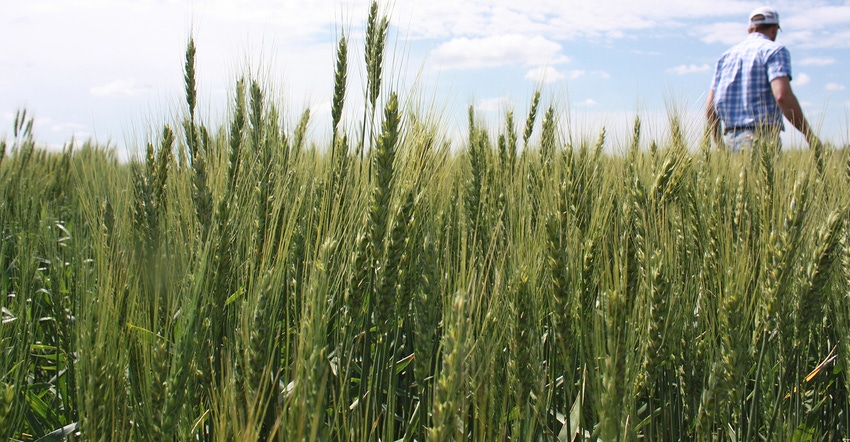
For several years, Syngenta plant breeders have said they hoped to introduce hybrid wheat in the U.S., perhaps as soon as 2020. But now there’s word that Syngenta has shifted its hybrid wheat focus to Europe.
“Our priority is to fully support our European program to launch hybrid wheat in the next few years,” Paul Minehart, head of Syngenta corporate communications in North America, said in an email. “However, in North America, where Syngenta has a market-leading position in varietal wheat, we will reduce our hybrid research and development and instead focus R&D [research and development] investment on our competitive varietal portfolio. In the U.S., we will continue work in early-stage hybrid wheat.”
Minehart went on to say, “Hybrid wheat is an important development opportunity because we believe it will deliver benefits to growers in increased yield — consistently year-on-year — as with hybrid barley. Following commercialization of hybrid wheat in Europe, expected in the next few years, we will then consider ramping up the hybrid wheat program once again in North America.”
BASF, which purchased Bayer, and Corteva Agriscience (Pioneer) have had hybrid wheat development programs. The University of Nebraska and Kansas State University both have projects related to hybrid wheat.
“We are excited about the prospects of hybrid wheat and the R&D advances we’ve made using new plant breeding approaches,” said Drew Porter, Corteva Agriscience’s global portfolio leader for wheat, alfalfa, inoculants and sorghum.
U.S. Wheat Associates — the farmer-led trade organization that works to build wheat markets globally —supports hybrid wheat.
“We know global demand for wheat is hitting new records every year, and farmers need the economic incentive increased yields would provide,” says Steve Mercer, U.S. Wheat’s spokesperson. “We must also support continuous quality improvement in wheat.”
U.S. Wheat’s quality specialists help determine if new hybrids and varieties meet or exceed grade and functional milling, baking and processing standards, he says.
About the Author(s)
You May Also Like






